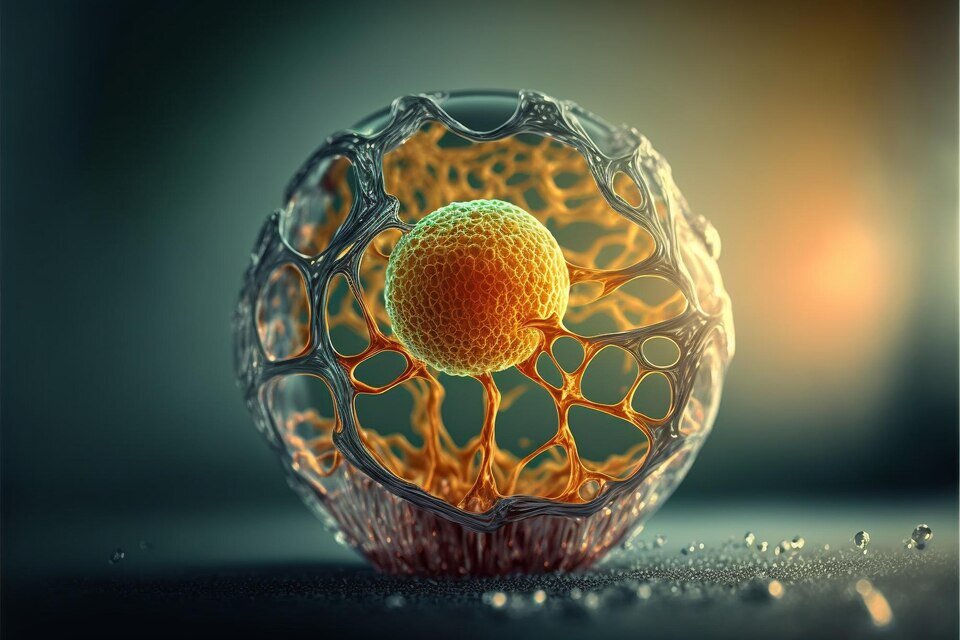The field of regenerative medicine has seen remarkable advancements over the past few decades. However, recent studies have shifted attention to a new player in the world of cell-based therapies, mesenchymal exosomes. These tiny, extracellular vesicles have shown unbelievable potential in several therapeutic applications, from tissue repair to the treatment of chronic diseases. This blog explores the emerging significance of mesenchymal exosomes, their biological functions, therapeutic applications, and the future of this promising technology.
Mesenchymal Exosomes
The behavior of recipient cells can be influenced by mesenchymal exosomes because they carry a cargo of bioactive molecules, making them powerful mediators of cellular processes such as proliferation, differentiation, and inflammation. Due to their small size and natural origin, exosomes can cross biological barriers and deliver therapeutic payloads to specific target cells with high efficiency.

Biological Functions of Mesenchymal Exosomes
Mesenchymal exosomes have been found to perform several critical biological functions, which are the basis for their therapeutic potential:
Modulation of Immune Responses
These vesicles can modulate immune responses by regulating the activity of various immune cells, including T cells, B cells, and macrophages. They can exert anti-inflammatory effects, which are beneficial in treating inflammatory and autoimmune diseases.
Promotion of Tissue Repair and Regeneration
These exosomes are rich in growth factors and cytokines that promote tissue repair and regeneration. They can enhance wound healing, stimulate angiogenesis (formation of new blood vessels), and support the regeneration of damaged tissues, including cartilage, bone, and cardiac tissue.
Anti-Apoptotic Effects
These can protect cells from apoptosis (programmed cell death) by delivering anti-apoptotic molecules. This property is particularly valuable in conditions where cell survival is compromised, such as in neurodegenerative diseases and ischemic injuries.
Delivery of Genetic Material
Exosomes can transfer genetic material, including mRNA and microRNA, to recipient cells. This transfer can modulate gene expression and influence cellular behavior, opening new avenues for gene therapy
Therapeutic Applications of
Mesenchymal Exosomes
The unique properties of these stem cell vesicles make them suitable for a wide range of therapeutic applications. Here are some of the most promising areas:
Regenerative Medicine
In regenerative medicine, stem cells are being explored for their potential to repair and regenerate damaged tissues. They have shown promising results in preclinical studies for the treatment of conditions such as myocardial infarction, stroke, osteoarthritis, and spinal cord injuries. By promoting tissue repair and reducing inflammation, exosomes can enhance the body’s natural healing processes.
Treatment of Inflammatory Diseases
The anti-inflammatory properties of these nano-sized cells make them an attractive option for treating inflammatory diseases, including rheumatoid arthritis, inflammatory bowel disease, and chronic obstructive pulmonary disease (COPD). Exosomes can modulate immune responses and reduce inflammation, potentially providing relief for patients with these chronic conditions.
Cancer Therapy
These stem cells have shown potential in cancer therapy by delivering anti-cancer agents directly to tumor cells. They can be engineered to carry therapeutic molecules, such as small interfering RNA (siRNA), microRNA, or chemotherapeutic drugs, to inhibit tumor growth and metastasis. Additionally, exosomes can modulate the tumor microenvironment to enhance the efficacy of existing cancer treatments.
Neurodegenerative Diseases
Exosome-based therapies are being investigated for their potential to treat neurodegenerative diseases such as Alzheimer’s, Parkinson’s, and amyotrophic lateral sclerosis (ALS). They can also cross the blood-brain barrier and deliver therapeutic molecules to neurons, offering a non-invasive approach to target these diseases.
Cardiovascular Diseases
In cardiovascular medicine, these exosomes have demonstrated the potential to promote cardiac repair and improve heart function after myocardial infarction. They can enhance angiogenesis, reduce fibrosis, and improve cardiac cell survival, contributing to better outcomes in heart disease patients.
Advantages of Mesenchymal Exosomes Over Traditional Cell Therapies
While traditional cell therapies using stem cells have shown promise, mesenchymal exosomes offer several advantages:
Reduced Risk of Immune Rejection
Exosomes are less likely to provoke an immune response compared to whole cells, reducing the risk of immune rejection and making them safer for clinical use.
Enhanced Delivery and Stability
Due to their small size and natural composition, exosomes can cross biological barriers, such as the blood-brain barrier, more effectively than whole cells. They also exhibit better stability and longer circulation times in the body.
Ease of Storage and Handling
Exosomes are easier to store, handle, and administer compared to live cells. They do not require the same stringent conditions for transportation and can be lyophilized (freeze-dried) for long-term storage.
Scalability
The production of exosomes can be scaled up more easily than the expansion of such Dynacord stem cells, making them a more practical option for widespread clinical use.
Challenges and Future Directions
Despite the promising potential of these highly regenerative cells, several challenges need to be addressed before they can be widely adopted in clinical practice:
Standardization and Quality Control
Ensuring the consistency and quality of exosome preparations is critical for their therapeutic use. Standardized protocols for exosome isolation, purification, and characterization are needed to ensure reproducibility and efficacy.
Understanding Mechanisms of Action
The medical field need further research to fully understand the mechanisms of action of mesenchymal exosomes. This includes identifying the specific bioactive molecules responsible for their therapeutic effects and elucidating how they interact with recipient cells.
Safety and Regulatory Approval
Extensive preclinical and clinical studies must establish the safety and efficacy of mesenchymal exosomes. Regulatory agencies will need to develop guidelines for the approval of exosome-based therapies, considering their unique properties and mechanisms.
Cost and Accessibility
The cost of producing and administering exosome-based therapies should be less to make them accessible to a broader patient population. Advances in manufacturing processes and economies of scale will be crucial in achieving this goal.
Conclusion
Mesenchymal exosomes represent a promising frontier in regenerative medicine and therapeutic applications. Their ability to modulate immune responses, promote tissue repair, and deliver genetic material offers significant advantages over traditional cell therapies. While challenges remain, ongoing research and technological advancements are paving the way for the clinical translation of exosome-based therapies.
As our understanding deepens, their potential to revolutionize the treatment of various diseases and injuries becomes increasingly apparent. By harnessing the power of these tiny vesicles, we may unlock new possibilities for healing and regeneration, bringing hope to patients worldwide. The future of mesenchymal exosomes in medicine is bright, and their journey from the laboratory to the clinic is one to watch with great anticipation.

